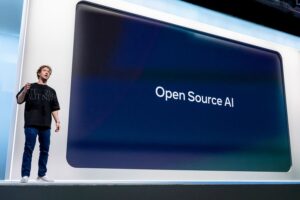Meta’s AI Leader Dismisses Concerns About AI Threatening Humanity as ‘Total Nonsense’

Yann LeCun on AI Safety: A Candid Perspective
AI Technology and Concerns
Yann LeCun, the Chief AI Scientist at Facebook AI Research (FAIR), recently addressed the anxieties surrounding artificial intelligence (AI) and its potential threats to humanity. In an interview with The Wall Street Journal, when asked if AI could become a danger in the near future, he responded emphatically, calling such fears “complete B.S.” His opinion highlights a significant division in the tech community regarding the risks linked with advanced AI technologies.
The Nature of Current AI Systems
LeCun points out that although the idea of Artificial General Intelligence (AGI)—machines capable of human-like thought processes—could someday emerge, current advanced models, such as large language models (LLMs) like ChatGPT, will not lead to AGI. According to LeCun, these models excel at generating text based on statistical patterns but lack true understanding or intelligence. He elaborates, stating:
- Language Manipulation: LLMs can "manipulate language" without being genuinely intelligent.
- Word Prediction: These models work by predicting the next word in a sequence, making their responses seem convincing.
- Real-World Understanding: LeCun is more interested in how Meta’s FAIR is harnessing AI to interpret video content from the real world, a step he believes is more aligned with creating meaningful AI.
Differing Opinions in the AI Community
LeCun’s views contrast sharply with those of other significant figures in the AI industry. For instance:
- Sam Altman, CEO of OpenAI, has forecasted that AGI might emerge in the “reasonably close-ish future.” This statement aligns with the broader concerns about the trajectory of AI development.
- Elon Musk, co-founder of multiple technology companies including xAI, has actively supported legislation to impose safety measures and accountability on AI systems. This reflects his worries about potential risks posed by AI technologies.
Regulatory Challenges
LeCun has expressed concerns regarding proposed legislation in California that aimed to regulate large AI systems. He claims such regulations could have "apocalyptic consequences" for the AI development ecosystem. Recently, California Governor Gavin Newsom vetoed this bill, arguing that it would create a misleading sense of security about the dangers of big tech, while ignoring risks from smaller companies.
Understanding AI’s Current Impact
Current State of AI: AI’s current capabilities revolve mostly around data processing and decision-making based on pre-existing information rather than independent comprehension.
Public Perception vs. Reality: There is a common misconception that every entity showing advanced communication skills possesses intelligence, which is not the case with today’s AI systems.
- Importance of Real-World Applications: The focus within research institutions, like FAIR, is shifting towards applying AI for practical problems, such as analyzing videos, which could have more significant benefits than merely improving chatbots.
Final Thoughts
As AI technology continues to evolve, it remains crucial to navigate the balance between innovation and safety. Discussions like those from LeCun provide vital insights into where the current AI landscape stands, dispelling myths while shining light on the importance of ethical AI development. Understanding these nuances will help foster a clearer view of what AI can and cannot do, guiding both public perception and policy.





